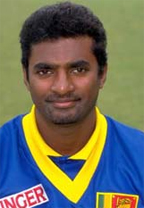There is a certain, satisfying poetic justice in the fact that Ricky Ponting will not, after all, be able to play in the final Test of the Ashes series that started last night at the Sydney Cricket Ground.
International Cricket Council (ICC) referee-in-chief Ranjan Madugalle chose a 40 per cent fine of Ponting’s match fee (pocket change of around US$6,000 to a multi-millionaire cricketer) rather than the suspension the Australian captain deserved for the latest of his argumentative confrontations with umpires during his team’s heavy loss in last week’s Melbourne Test that ensured England would retain the treasured little trophy.
As it turned out, further harm to his already cracked little finger during the
match did what Madugalle should have. Now Ponting will have to watch while
Michael Clarke takes over in an effort for a consolation victory that, if achieved, might even end Ponting’s time as captain.
To quote a good old Bajan saying, “God don’t sleep”.

Whatever the reasons for Madugalle’s lenient ruling, it once again raised suspicions, often stated in this column and elsewhere, that, while all cricketers might be created equal in the eyes of the ICC, some, principally Australians, are more equal than others.
Former England captain Nasser Hussain, presently in Australia as a television commentator and newspaper columnist, made the same point in this instance.
“What I do know is that the ICC are very quick to take action against the small guys – like West Indies off-spinner Shane Shillingford who was suspended last week for an illegal bowling action – but do not often go for the big fish of the game. They must not be afraid to make a judgment on the sport’s biggest names if
they are guilty of misdemeanours.”
Taking up Hussain’s thrust, when last were the degrees of flex measured on the actions of Muttiah Muralitheran or Harbhajan Singh, for instance?
While it is impossible to come to the defence of Sulieman Benn, given his given his litany of disciplinary charges, why should the West Indies’ left-arm spinner receive two separate suspensions and others, equally at fault, like the Australians Mitchell Johnson, Brad Haddin and Ponting, be allowed to play on after paying derisory fines?
And how does Kemar Roach’s fine of 50 per cent of his match fee for his mid-pitch altercation with Jacques Kallis in the Kensington Oval Test last June sit alongside Ponting’s imposition of 10 per cent less for a transgression, by a
captain, far more damaging to the game?

These are questions driven not by paranoia but by genuine concern.
Ponting’s fury in Melbourne followed technological confirmation from television umpire Marais Erasmus that his on-field colleague Aleem Dar was correct to rule Kevin Pietersen not out on a catch at the wicket as England amassed their formidable, match-winning total.
The overwhelming majority who saw what Erasmus saw came to the same conclusion yet Ponting immediately engaged Dar in a lengthy, finger-pointing inquest before turning his attention to the square-leg ump, Tony Hill, and Pietersen.
Even in middle-of-the-night drowsiness and even knowing Ponting’s record in such matters, the live television images of the captain’s rant came as a shock.
We’ve become accustomed, through the same medium, of football referees surrounded by raging, overpaid professionals querying almost every blow of the whistle. But cricket has, so far, been spared such altercations.
Predictably, Ponting issued a public apology. He accepted that the “discussion” with Dar went on for too long, that he was “simply trying to seek clarification from the umpires regarding how the decision had been made” and that if anyone thought he was being disrespectful towards the umpires “this wasn’t my intention”.
Such remorse was soon revealed for what it was. Once the the fine had been imposed, Ponting asserted, on air, that he had watched the replay of the relevant decision, with its “hot spot” facility, and still believed Pietersen had hit the ball.
In other words, he was still right and the umpires still wrong. It was the ultimate in pig-headedness.
Had the penalty, by no means the first in his career as the belligerent leader of the game’s most belligerent team, been a suspension, it would have eliminated him from the Sydney match. The fine came as a relief for a captain eager for one last chance to atone, even if partially, for his own dismal form (average 16) and that of his team. Now, for a completely different reason, that hope has been dashed.
In other circumstances, there would be universal compassion for such an outstanding cricketer nearing the end of his playing days but Ponting’s petulance on the field has repeatedly tarnished his reputation and tested the public’s tolerance.
This was his fourth fine in five years for one misdemeanour or another.
Two have been for hectoring umpires, as he did in Melbourne. He had to cough up 30 per cent of his match fee in Grenada two years ago when he carried on against umpire Norman Malcolm’s not out decision for a catch at the wicket against Patrick Browne.
When the West Indies were last in Australia, in 2005, umpire Mark Benson quit the international panel after Ponting hassled him for turning down an appeal against Shivnarine Chanderpaul for a catch at the wicket. Technology favoured
the umpire in that case as well.
During the cantankerous series against India in Australia two years ago, he was widely criticised for his inability to curb the excesses of his players. There were calls, even then, for him to be dismissed.
The relatively recent ‘Spirit of Cricket’ preamble to the Laws might have been written with him and Australia in mind.
It states: “Cricket is a game that owes much of its unique appeal to the fact that it should be played not only within the laws but also within the spirit of the game. Any action which is seen to abuse the spirit causes injury to the game itself.”
Significantly, it adds: “The major responsibility for ensuring the spirit of fair play rests with the captains.”
It further stresses respect for the umpires, noting: “It is against the spirit of the game to dispute an umpire’s decision by word, action or gesture.”
It was a charter Australia’s cricketers had signed with great flourish. In Melbourne, Ponting appears to have forgotten.
–





